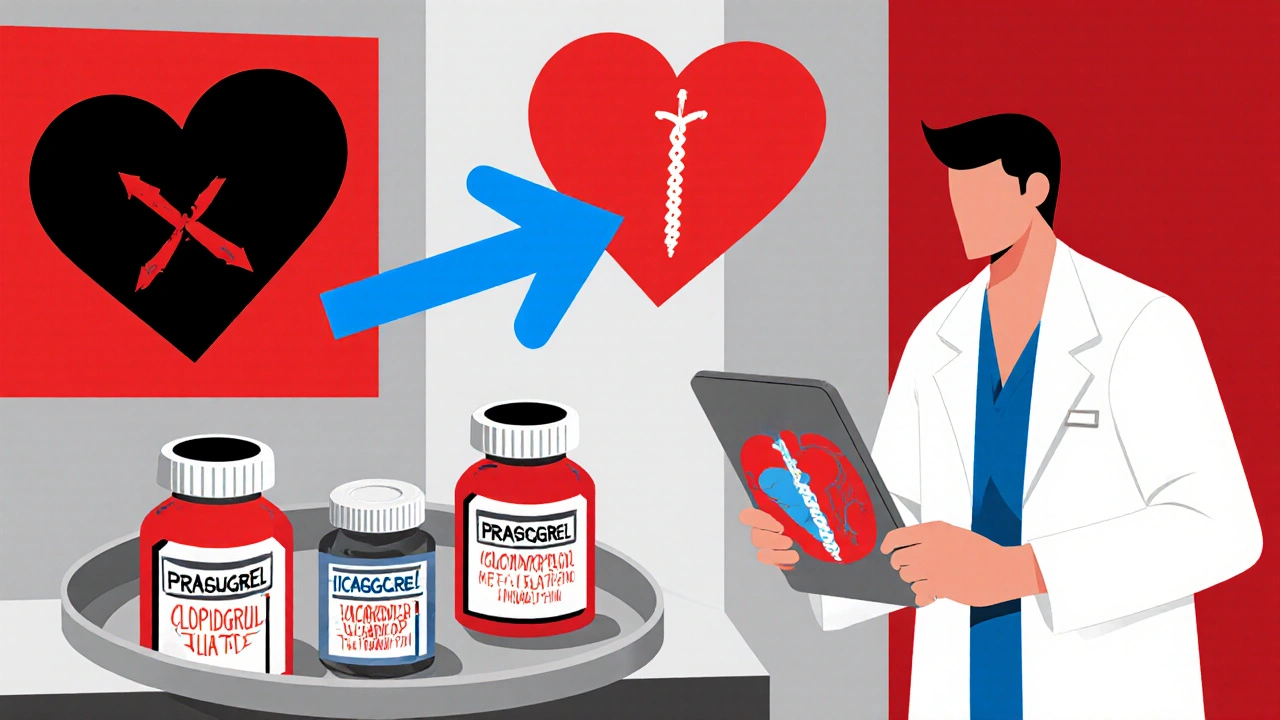Clopidogrel: What It Is, How It Works, and What You Need to Know
When your doctor prescribes clopidogrel, a prescription antiplatelet medication used to stop blood clots in people with heart disease or after stent placement. Also known as Plavix, it’s one of the most common drugs used to keep arteries open after a heart attack or stroke. Unlike blood thinners like warfarin, clopidogrel doesn’t thin your blood — it stops platelets from sticking together. That’s why it’s so important for people who’ve had stents put in, or those with peripheral artery disease. It’s not a cure, but it’s a daily shield against another clot that could be life-threatening.
Clopidogrel doesn’t work alone. Many people take it with aspirin, a common over-the-counter painkiller that also blocks platelet activity. This combo, called dual antiplatelet therapy, is standard after heart procedures. But mixing them isn’t risk-free — stomach bleeding is a real concern, especially if you’re older or have a history of ulcers. Some people also wonder how it compares to ticagrelor, a newer antiplatelet drug that works faster and doesn’t need to be converted by the liver. While ticagrelor might be stronger, clopidogrel is cheaper, widely available, and still the go-to for millions.
Not everyone responds the same way to clopidogrel. Some people have genetic variations that make their bodies process it poorly — this is called clopidogrel resistance. If you’ve had a second clot while on the drug, your doctor might test for this. It’s not routine, but it’s something to bring up if your condition hasn’t improved. Also, certain meds like omeprazole (a common heartburn drug) can interfere with clopidogrel’s effectiveness. That’s why it’s critical to tell your pharmacist and doctor everything you’re taking — even herbal supplements like garlic or ginkgo, which can increase bleeding risk.
Side effects are usually mild — bruising, nosebleeds, upset stomach — but serious ones like unusual bleeding or purple spots on your skin need immediate attention. You shouldn’t stop clopidogrel suddenly, even if you feel fine. Stopping it too early after a stent can trigger a deadly clot. Always talk to your doctor before making any changes.
The posts below cover real-world concerns tied to clopidogrel and the broader world of cardiovascular meds. You’ll find comparisons with other antiplatelet drugs, insights on drug interactions, and practical advice on managing risks without sacrificing protection. Whether you’re taking clopidogrel yourself or caring for someone who is, these guides give you the facts — no fluff, no jargon, just what matters for your health.

Prasugrel vs Alternatives: Efficacy, Safety, and Cost Comparison
A detailed comparison of Prasugrel with clopidogrel and ticagrelor covering efficacy, safety, dosing, cost, and guideline recommendations for heart patients.
read more




